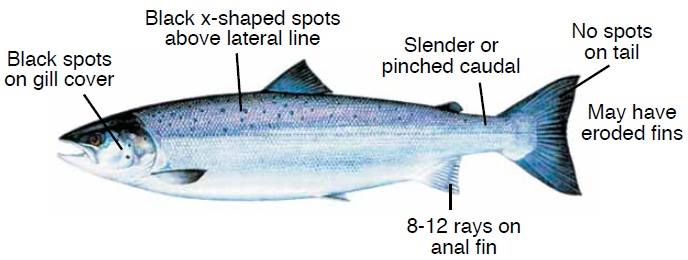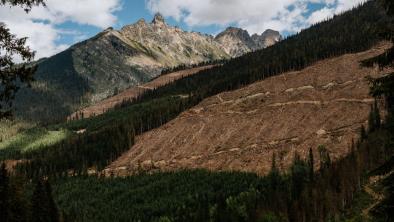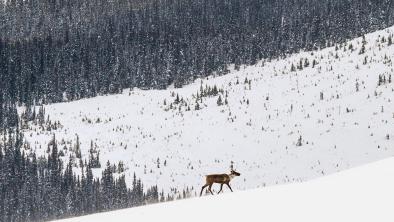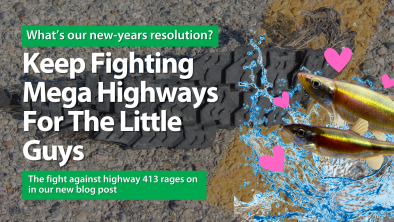Atlantic salmon caught in the Harrison River
Agassiz-Harrison Observer

Experts say foreign fish still a cause for concern
Don Temple had driven up from Abbotsford to fish for Coho salmon in the Harrison River on Oct. 8.
He, like many other fishers this time of year, was excited for fall: salmon season. But what Temple caught that day in the Harrison was unlike any fish he’d caught before.
A quick Google search told Temple that the black spots on the gill plate and rubbed-down fins meant he had caught an Atlantic salmon, one that had somehow escaped a fish farm.
The Department of Fisheries and Oceans (DFO) agreed the catch was likely an escaped Atlantic salmon. Temple brought the head to the DFO so they could try to determine which farm it came from.
There were at least 42 reports of Atlantic salmon called in to the DFO’s Atlantic Salmon Watch hotline between August and October. And as more Atlantic salmon show up in the Fraser Valley, including at least three caught along the Fraser River this fall, the risks posed to local ecosystems could be growing.
Many of these escaped fish are assumed to be the result of a large escape of Atlantic salmon in August from a breached fish farm owned by Cook Aquaculture in Washington State. It was reported that about 100,000 of the escaped fish were never recovered.
“The concern is that these fish, if they ever take hold and spawn in these rivers, then it’s going to, or could, displace or dislodge the local fish that are from the Pacific Coast,” Temple said. “Once the genie’s out of the bottle you can’t get it back in.”
But DFO senior aquaculture biologist Byron Andres told Black Press that farmed fish can’t constitute direct competition with wild salmon species.
“It’s a myth. Some used to believe they could breed or hybridize. But it’s not feasible genetically,” Andres said in a September interview.
B.C. Wilderness Committee campaign director Joe Foy is troubled to hear of the Atlantic salmon caught in the Harrison River.
“You’ve got everything going through there,” he said. “You’re right in the heart of the Fraser so you’ve got really important coho and chinook runs that come through … That’s one of the most important sites in the Fraser system.”
Foy acknowledges concerns about Atlantic salmon taking root and competing with wild species, but he doesn’t think it’s all too likely since salmon farms have been operating in proximity for some time. Foy’s concerns are around the potential for disease-spreading to wild populations.
“Farmers, of which there are many in the Agassiz area, will recognize that when you’re farming animals, you’re often times keeping them in closer proximity, higher density than they would normally be found in the wild,” he said.
“And that’s what happens with [Atlantic] salmon. They’re kept in closer proximity. And as in all that kind of farming, one of the things that happens when you keep animals in closer proximity … is you can have disease issues.”
Foy says in net farms, disease is fought with chemicals or antibiotics. But he’s concerned that an agricultural animal escaping and coming up the river towards spawning grounds puts wild species at a higher risk for disease.
“You would not want disease jumping out of the agriculturally farmed fish into the wild stocks,” Foy said. “That would be an absolute tragedy. There should be no way for these things to happen.
“Open-net cage salmon farming should be banned from the entire B.C. coast.”
One of Foy’s favourite wild salmon habitats is just south of Chilliwack Lake.
“It’s just beautiful when all the sockeye salmon come in there,” he said.
“It would be a nightmare to think of an Atlantic salmon transporting some kind of a persistent disease up into those stocks. I’m not saying it’s happened yet. I just don’t think it’s worth the risk.
“For me, the solution is we need salmon farms out of the ocean.”
Atlantic salmon have black spots on their gill covers, X-shaped spots on the upper half of their bodies and no spots on their tails. They may have eroded fins from rubbing against other fish in a pen.
Foy urges anyone who catches an Atlantic salmon to keep the fish and call the DFO so the incident and location can be recorded. B.C.’s Atlantic Salmon Watch Program can be reached at 1-800-811-6010.
Click here for more information about identifying Atlantic salmon and the Atlantic Salmon Watch Program.
– with files from Jennifer Feinberg



